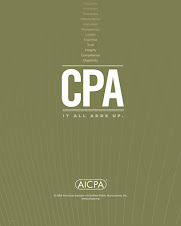Here are the potential perks.
· Income tax savings. Say that you reduce your compensation by the amount of salary you pay your child. Instead of being taxed to you at rates reaching up to 45 percent this year, the income is taxable to your child. For 2012, your child can earn up to the standard deduction amount of $5,950 without paying any federal income tax. Any excess is taxed at a low 10 percent rate.
o Example:
§ You pay your child $5,000 to work during the summer before she heads off to college. The entire $5,000 in wages is covered by the standard deduction. In contrast, if you are in a 33 percent bracket, $5,000 in wages would save you $1,650 in tax. In addition, your adjusted gross income (AGI) is also lowered, which means there is less chance that you'll be subject to unfavorable AGI-based phase-out rules.
· Kiddie tax avoidance. Generally, the unearned income of a child under age 19, or a full-time student under age 24, is taxed at the parents' tax rate to the extent it exceeds an annual threshold ($1,900 in 2012). But this rule doesn't apply to "earned income" that your child is paid in wages.
· Business tax deduction. You get a business deduction for money that, as a parent, you might have given your child anyway. The wages you pay the child are deductible by the business just like the wages paid to any other employee of the company. However, when a family member is employed, you must take care to ensure that the wages are reasonable in amount for the services actually provided (see right-hand box).
· Payroll tax savings. If a child under age 18 is employed by his or her parent in an unincorporated business, the earnings are exempt from FICA tax. This exemption also applies to FUTA tax up until the age of 21. These payroll tax breaks can provide significant tax savings for a parent who is self-employed or a partner in a partnership.
o An unincorporated business includes a sole proprietorship; husband-and-wife partnership (owned only by you and your spouse); a husband-and-wife limited liability company (LLC); or a single-member LLC, which is treated as a sole proprietorship for federal tax purposes.
o What if your business operates as another type of entity, such as a C or S corporation? Your child's wages are subject to Social Security, Medicare, and FUTA taxes, regardless of age. That's the bad news.
· Children Age 18 and Older: After your children reach age 18, the tax advantages decrease, because their wages are then subject to Social Security and Medicare taxes (however no FUTA tax is due until age 21).
o As the employer, your business must pay its share of the Social Security and Medicare taxes. The employee's share is withheld from your child's paychecks. However, again, the child's standard deduction still shelters up to $5,950 from the federal income tax. And you still collect a nice business write-off that cuts your income tax and self-employment tax bills.
· Tax-free fringe benefits. As an official employee, the child is in line to receive tax-free company fringe benefits. This may include health insurance coverage, group-term life insurance coverage up to $50,000 and educational assistance plans. As with wages, payments under a qualified plan are tax-deductible by the business.
· Individual Retirement Arrangements (IRAs). If your child has earnings from a job, he or she can contribute to a traditional or Roth IRA. The maximum contribution for 2012 is $5,000. Because the child's income is low, contributions to a traditional IRA are deductible on the child's return. Contributions to a Roth IRA aren't deductible, but any withdrawals made after age 59 1/2 are tax-free, as long as the account has been open five years. Retirement will seem like a long way off to the child, but this is a good way to save for the future.
Tax-smart idea: Have your child open a Roth IRA and fund it with summertime earnings. They can use these accounts to save money for college, a first home -- and, of course, retirement. By socking away some of their earnings in a Roth IRA, your youngsters can begin a savings plan that can grow into a small fortune.
Roth IRAs allow earnings to build up tax-free. And the tax law allows money to be taken out penalty-free in special circumstances, which include paying for college and buying a first home.
There's a lot to be gained by hiring your child to work for the business, but don't ignore the human element of the arrangement. Make sure it's a good fit for everyone involved.



No comments:
Post a Comment